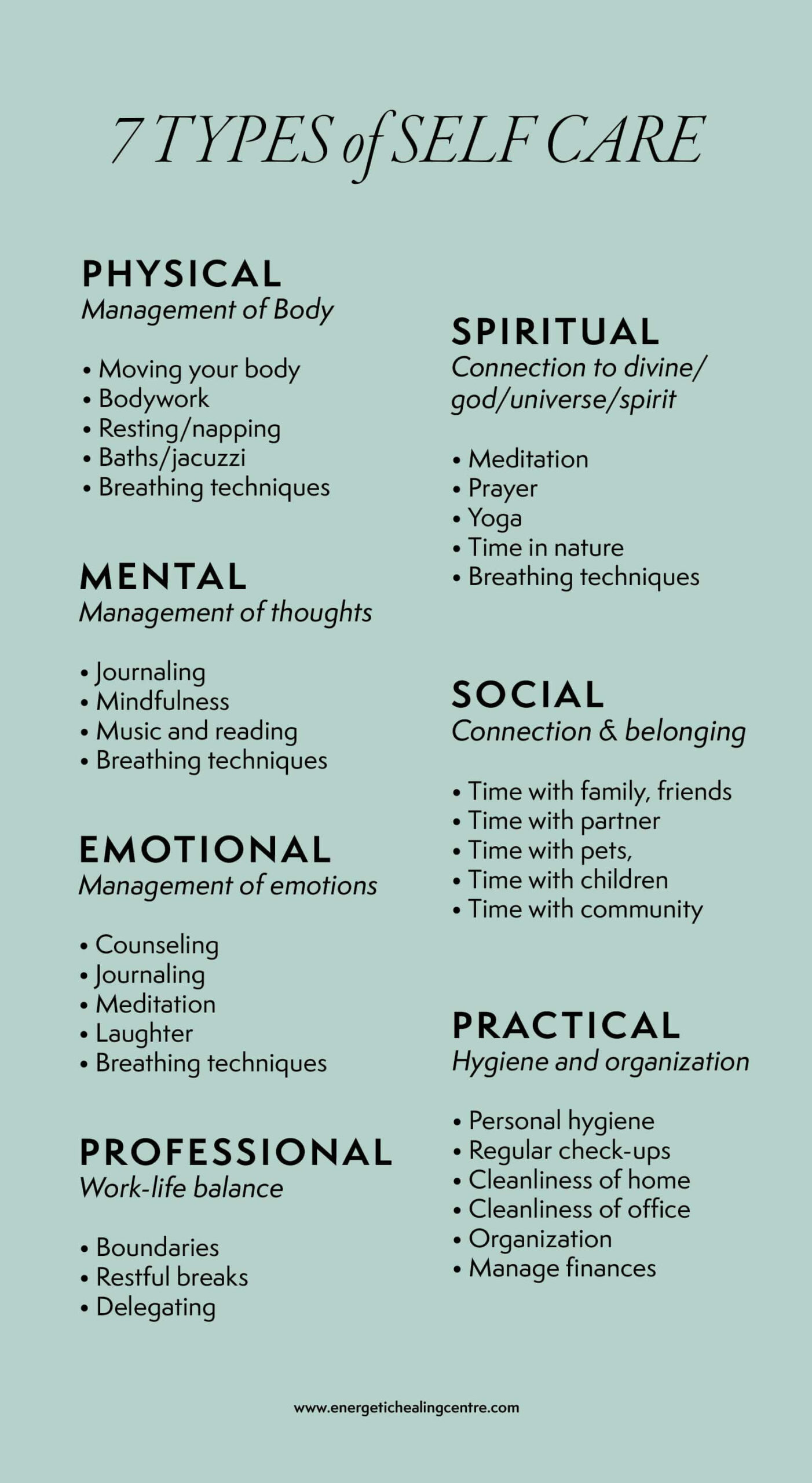Massages, facials and bubble baths? Yes and No.
Self Care is taking care of our body, mind and spirit on a regular (daily) basis to maintain health and wellness. It’s not a one-and-done or once in a while. It’s not a luxury, reward or indulgence. It’s not something to be able to afford. Depending on how you want or are able for it to look, it doesn’t have to cost you a cent. Self Care helps us cope with life’s many challenges, preventing burnout and dis-ease.
It’s a concept, a priority, a necessity: a lifestyle.
And honestly, it’s not always comfortable because we are learning about ourselves and our needs in a deep way—facing our problems, not masking them. We are essentially being proactive in our life, focusing on the big picture, not our immediate wants and desires. It calls for being in touch with the whispers of our body, mind and spirit. Establishing a healthy routine and mindfully incorporating the types of self care below will help you establish a fulfilling relationship with yourself.
There are 7 categories I’m highlighting here to foster Self Care, but I want to start with the Basics:
- Nourishing, Energizing Food
- Quality, Hydrating Water
- Solid, Rejuvenating Sleep
These are not to be sacrificed or downplayed…EVER! These 3 essential types of self care trickle into and impact the lists below. For example, If we eat nourishing food that gives us energy, we then have the energy to exercise, and when we exercise it relaxes us and helps us sleep better.
7 types of self care
Physical Self Care: Management of Body
- Moving your body…
- Exercise/yoga
- Bodywork
- Resting/napping
- Baths/jacuzzi
- Breathing techniques
Mental Self Care: Management of Thoughts
- Journaling
- Mindfulness
- Listen to music
- Read a book
- Breathing techniques
Emotional Self Care: Management of Emotions
- Counseling
- Journaling
- Meditation
- Laughter
- Breathing techniques
Spiritual Self Care: Connection to Divine/God/Universe/Spirit
- Meditation
- Prayer
- Yoga
- Spending time in nature
- Breathing techniques
Social Self Care: Connection w/ Others + Belonging
- Spending time with friends and family
- Spending time with partner
- Spending time with children
- Spending time with pets
- Spending time with community
Professional Self Care: Work-Life Balance
- Boundaries
- Asking for help/delegation
- Taking restful breaks
- Disconnect from phone calls and emails when taking break
Practical Self Care: Hygiene
- Personal: body cleanliness and check-ups
- Home: cleanliness, organization
- Car: cleanliness, organization
- Office: cleanliness, organization
- Finances: organization, budget, track
But before you can incorporate these 7 types of Self Care into your daily life, you must be aware of the reasons you currently struggle with consistent Self Care:
- Feeling that your own health, growth, and healing doesn’t matter
- Time
- Priorities
- Validity of your needs and desires
- Self-discipline
- You think it’s selfish
- Addictions: alcohol, overeating, binge-watching TV, stress, caring for others/others are more important
Benefits of Self Care:
- Promote healthy relationship with self
- Reduce and manage stress
- Reduce and manage anxiety
- Minimize challenging emotions
- Healthy coping skills
- Recharge
- Refill
- Restore
- Rejuvenate
- Prevent burnout
- Prevent illness
- Prevent dis-ease
- Increase self confidence and self esteem
- Encourage relaxation
Self Care is not a cookie cutter approach. We each have our own individual methods that help us feel like our best selves. So trying new things and seeing what helps you feel your best is part of the journey. Self Care is a journey and a practice, what we need may change. By having a regular, established self care practice, being in touch with your needs and what helps and doesn’t, you can easily alter your self care practice to reflect your current needs.
As I mentioned in the beginning, Self Care is promoted as a spa day… which is no doubt, a nice relaxing way to treat yourself. Massages, facials and bubble baths do fall into these categories, but it’s so much more than that. Establishing a healthy routine, mindfully incorporating the topics above will help you establish a healthy, fulfilling relationship with yourself. The most important relationship we have is with ourselves.
Is your health and wellness a priority? Are you a priority?
If you’d like to learn more about how to incorporate these types of Self Care into your own routine, sign up to learn more about my upcoming wellness program, The Practice of Self Care. I look forward to helping you make Self Care a priority.
